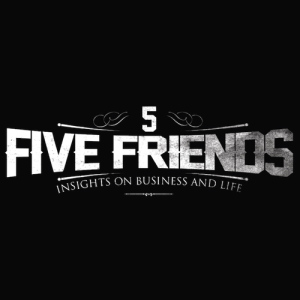
What You Can Do To Have A Better 2015
Five best-selling authors, Speaker Hall of Fame recipients, internationally-acclaimed business consultants and best buddies give their insights on business and life.
From Joe Calloway:
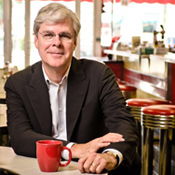 1. Spend more time with your kids. Nothing but good can come from it.
1. Spend more time with your kids. Nothing but good can come from it.
2. Stop waiting for someone else to “fix it.” Go fix it yourself.
3. Read more books.
4. Watch less TV.
5. Have that conversation you’ve been avoiding.
6. Don’t waste time with people you can’t stand.
7. Stay in touch with your friends. That’s something that has made each of the 5 Friends happier for a couple of years now.
8. If it’s worth doing, it’s worth doing wrong. (Then do it better.)
9. Focus on what’s most important and stop wasting time on the unimportant.
10. Simplify. Stop making things more complicated than they need to be.
11. Stop having to be “right” and having to make the other guy “wrong.”
12. Stop hoping that person (you know who I’m talking about) will somehow miraculously change. Take action.
13. Say “no” to the things you know damned well you need to say “no” to.
14. Stop whining about what’s wrong. Start making it right.
15. Get outside more.
16. Never drink cheap wine.
17. Consider getting a dog.
18. Try some Jefferson’s Reserve.
19. Read and listen to people with whom you usually disagree.
20. Let it go.
Joe Calloway helps great companies get even better. www.JoeCalloway.com
From Mark Sanborn:
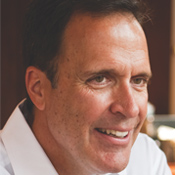
Stop worrying and replace it with concern.
Worry is a negative emotion about what might happen that you can do nothing about.
Concern is a useful emotion about what you can do about what might happen.
Much if not most of what we worry about never happens, but the worry takes a heavy psychological and physiological toll.
Concern focuses on what you can do to avoid something bad or create something good. It focuses on “what” not “if.”
Use income taxes as an example. Some people worry about getting audited. That’s a waste of time. The IRS will decide whether or not you get audited.
Concern prevents you from taking sketchy deductions. Concern is why you keep good records. Concern motivates you to make sure you have a good tax professional. All of those things you control.
Worry is often caused by stupid or inappropriate things we’ve done. Once those things are done, worry doesn’t help. But concern for potential consequences should keep us from doing stupid or inappropriate things in the future.
So stop fretting over what you don’t control and do everything in your effort to control what you can.
Mark Sanborn is president of Sanborn & Associates, Inc., an idea studio for leadership development. He is an award-winning speaker bestselling author of books including, The Fred Factor. For more information and free resources, visit www.marksanborn.com.
From Randy Pennington:
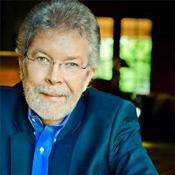
I think most of us would do a lot better next year if we were completely honest with ourselves on three questions:
- What exactly does “better” mean to you?
- What are your strengths, limitations, and current realities that will affect your ability to be better?
- What are you willing to sacrifice and do to achieve your vision of better?
Contrary to traditional thinking on goal setting, you can hit a target that you don’t see. It is called blind luck.
Never turn down good luck, but the better plan is to at least set a target. The clearer you are the better, but even a general idea that sends you in the right direction beats nothing.
We generally avoid telling ourselves the truth questions 2 and 3.There are some things that will never happen – like me playing basketball in the NBA. And, there are other things that we say we want, but we know that we’ll never do the work or make the necessary sacrifices.
Nothing we want really ever changes until we tell ourselves the truth. So if you want 2015 to be better, start by being brutally and relentlessly honest about those three questions.
Randy Pennington helps leaders deliver positive results in a world of accelerating change. To find out more, go to www.penningtongroup.com.
From Scott McKain:

The best advice I’ve heard for how to create a better 2015 comes from my friend, Jim Cathcart, and his brilliant question: “How would the person I’d like to become do what I’m about to do?”
Most of us do things in the manner that we have previously acted. Jim’s question moves us to consider a different alternative: how would the person I’d like to become manage her time, finances, or activities?
This also compels us to consider another question: Who is the person I’d like to become?
For example, how fit is the person that you want to become? If you don’t have your health, little else matters – and, it’s something we frequently take for granted.
It was a question I asked myself last year – therefore, I bought an UP band, and set a goal to walk 10,000 steps daily. While I didn’t achieve that standard every day, I did most days. I have more energy and feel better in January 2015 than I did a year ago as a result. You can do the same.
Your key to 2015? Define the person you’d like to become – plan from that perspective – then, take action like he or she would!
Scott McKain teaches how organizations and individual professionals can create distinction in their marketplace, and deliver the “Ultimate Customer Experience ®.” For more information: www.ScottMcKain.com
From Larry Winget:
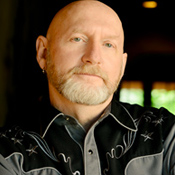
I believe you already know what you can do so next year will be better than last year. Instead, I want you to focus on what you should STOP doing:
Stop spending major time on minor things. Most of the things that take up the bulk of your day could just as easily be skipped with little or no consequences. Focus on doing the activities that have big consequences.
Stop being a wimp. Know what you believe in and stand up for it. Do this with your kids, coworkers, friends and government. In other words, grow a pair.
Stop letting passion run your business and use some facts instead. The fact is you need to be better at what you do, regardless of how good you are at it now. The fact is your customer only cares about the value you bring to them, so bring more value. The fact is you are in business to be profitable. Your heart will confuse these facts – use your head instead.
Stop caring. Stop caring what others think and say about you.
Stop living to make others happy and start living to make yourself happy.
Stop making excuses.
Stop compromising.
Enough said.
Larry Winget, the Pitbull of Personal Development®, is a six-time NYT/WSJ bestselling author, social commentator and appears regularly on many national television news shows. To find out more, go to www.LarryWinget.com.


Thank you and well said gentlemen. A very happy New Year to you all.
Happy New Year! The Fab Five have it down pat. Spend more time with family and friends;spend less time at the office.
5 for 5! Excellent advice gentlemen. Here’s what I love about this weekly feature: it is loaded with powerful messages from those who’ve achieved the success many of us are looking to create, leaving a TON of clues for us to follow. Sometimes they smack us between the eyes, and sometimes they are a hand that points and says “Hey, there’s a cliff over there…don’t follow the idiots who keep running off the edge.”
Happy New Year to each of you! So excited about 2015 because my intentions and plans incorporate a lot of what you all recommended – so it can only get better. I do like Larry’s perspective on ‘stopping’ some things – which fits with my plans to simplify. And Joe, you nailed it with your reference to the importance of staying connected with friends. They have been my saving grace over the past few years, in particular – and, over the past few weeks, I was able to ‘be there’ for a few of my friends who needed support.
Thank you all – keep sharing the words of wisdom. I really appreciate it.
Pat Mussieux